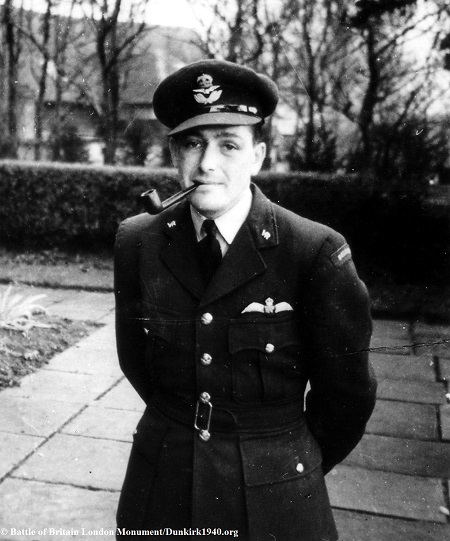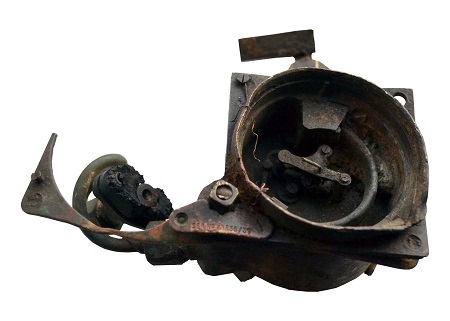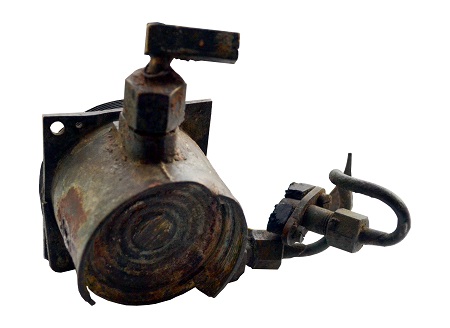Nationality: British
Serial number: V6535
Unit: 32 Squadron
Call sign: Not known
Date of Loss: 18/08/1940
This aircraft was flown by the Belgian pilot, Pilot Officer Count Rodolphe de Hemricourt de Grunne. The squadron had been scrambled from Biggin Hill to intercept an incoming raid of Dornier 17 bombers. After sharing in the destruction of one of the bombers, this pilot was shot down over Herne Bay by the Bf109 fighter escort at 17.35 hours. He baled out, landing by parachute, but badly burned, at Ruckinge. He required extensive treatment and was hospitalised until February 1941.
 The exhibit on display here is the remains of the brass oxygen regulator instrument which had been mounted on the left hand side of the instrument panel. To learn about gauges, click here.
The exhibit on display here is the remains of the brass oxygen regulator instrument which had been mounted on the left hand side of the instrument panel. To learn about gauges, click here.
Born in Brussels in 1911, Rodolphe had a very interesting military career. He undertook his compulsory military service with the Belgian Cavalry in the early 1930s and around this time he also gained his civilian pilot's licence.
In September 1936, he volunteered for service with Franco's Nationalist forces in the Spanish Civil War. After a short stint in the infantry, he was transferred to the Nationalist Air Force, the so called "Condor Legion". Initially flying Heinkel 46 reconnaissance aircraft, he later graduated to flying Heinkel 51 and Fiat CR 32 fighters and was credited with the destruction of 14 Republican aircraft.
At the end of the Spanish Civil War in 1939, he returned to Belgium and was promptly mobilised into the Belgian Infantry. Common sense eventually prevailed and in early 1940 he was accepted into the Belgian Air Force. With Belgium being swiftly overrun in May 1940 and its air force being effectively wiped out in the opening days of the campaign, Rodolphe made his way across France. He was evacuated during Operation Ariel on the 20th June, 1940 from the Gironde River, south of Bordeaux, along with a number of Czech and Polish pilots.
He joined the RAF and after a short spell with 7 OTU he was posted to 32 Squadron. During his RAF career he was credited with three "kills". He returned to flying duties in April 1941, flying Spitfires with 609 Squadron.
On the 21st May 1941, during the "Circus 10" operation, he was shot down in combat and baled out over the Goodwin Sands and was posted as "missing". Despite an extensive search by the Ramsgate Lifeboat his body was never recovered and he is commemorated on the Runnymede Memorial. He was awarded the Belgian Croix de Guerre posthumously.
